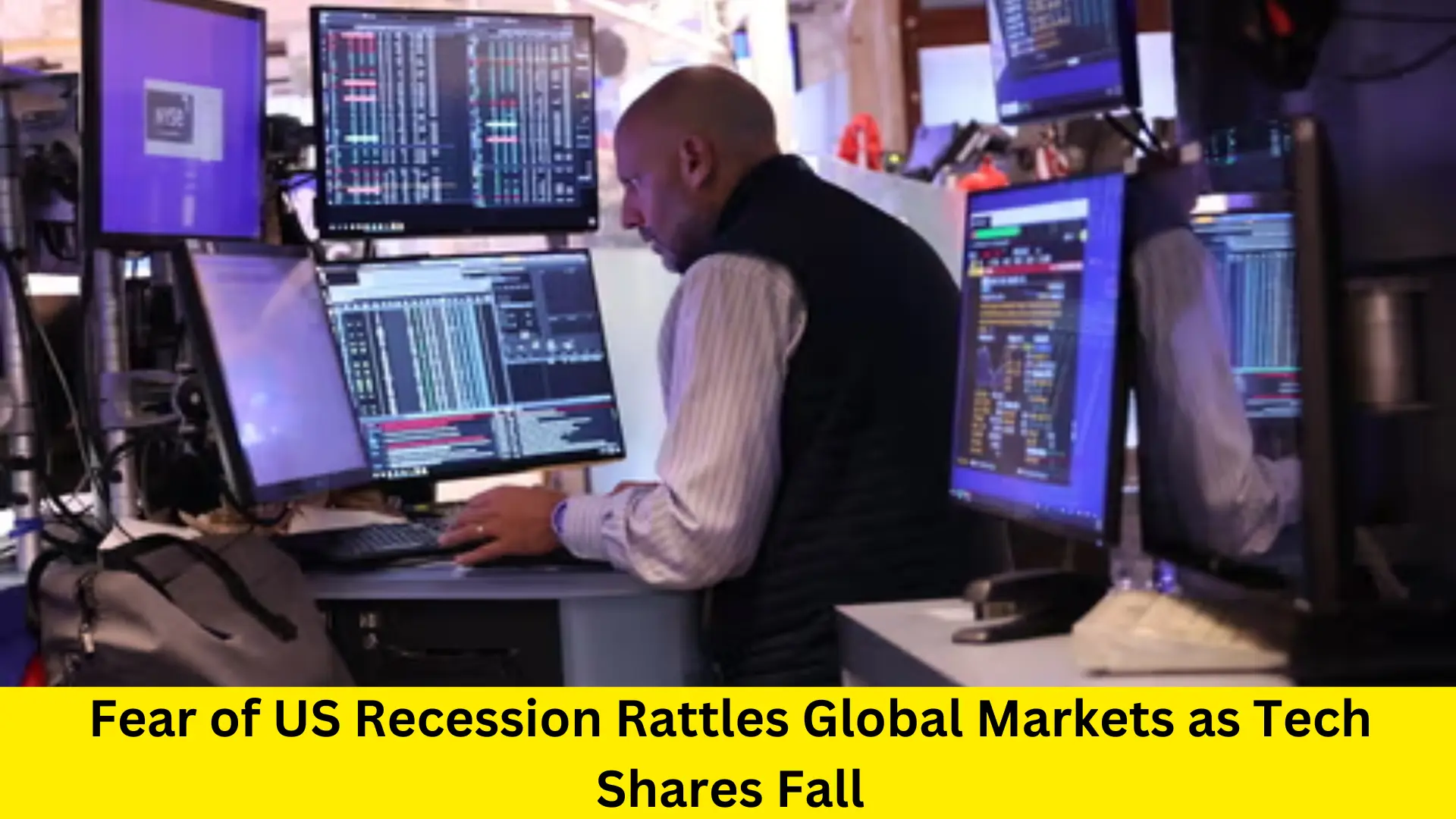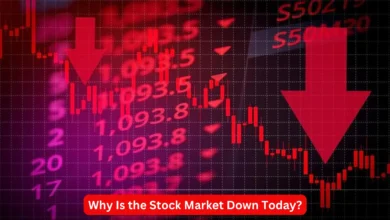Fear of US Recession Rattles Global Markets as Tech Shares Fall

Global Stock Market Turmoil: Europe, Asia, and New York Hit Hard
On a tumultuous Friday, global stock markets witnessed significant declines, with European, Asian, and New York indices all tumbling. This widespread sell-off was triggered by escalating fears of a US economic slump and disappointing earnings reports from major technology firms.
US Economic Concerns Spark Global Sell-Off
The catalyst for the market turmoil was a dismal US employment report released on Friday. The report indicated a sharp slowdown in job creation, with only 114,000 new jobs added in the previous month, falling short of the 175,000 expected by analysts. The US unemployment rate also increased from 4.1% to 4.3%, exacerbating fears that the US economy is weakening faster than anticipated.
Implications for the Federal Reserve’s Monetary Policy
Economists are now speculating that the Federal Reserve may be forced to implement a sharp cut in borrowing costs in September or even consider an emergency rate cut before then to stimulate demand. Stephen Brown, Deputy Chief North America Economist at Capital Economics, remarked, “The sharp slowdown in payrolls in July and the sharper rise in the unemployment rate make a September interest rate cut inevitable and will increase speculation that the Fed will kick off its loosening cycle with a 50bp cut or even an intra-meeting move.”
Weak US Manufacturing and Tech Sector Performance
Adding to the market anxiety, data earlier in the week showed significant weakness in the US manufacturing sector. This, coupled with underwhelming earnings from semiconductor giant Intel, resulted in a sharp decline in technology stocks. The Nasdaq index, heavily weighted towards tech companies, fell nearly 3% in early trading, edging closer to a correction—a 10% drop from its record high.
International Markets Follow Suit
The impact of US economic concerns was felt globally. In Asia, Japanese equities experienced their worst day since the Covid-19 pandemic, with the Nikkei 225 falling by 5.8% to its lowest closing level since January, and the broader Topix index dropping 6.1%. Australia’s ASX and Hong Kong’s Hang Seng also saw significant declines, falling 2.5% and 2.1% respectively.
European Stock Indices Plunge
In Europe, major stock indices also suffered. France’s CAC 40 hit its lowest level since last November, dropping over 1%, while Germany’s Dax lost 2%. European technology stocks were particularly hard-hit, reaching their lowest levels in more than six months. Notably, ASML shares fell 9.6%, and ASM International plummeted 13.7%.
Jim Reid, an analyst at Deutsche Bank, highlighted the precarious situation, stating, “The past 24 hours have seen an increasingly precarious backdrop for risk markets, with a risk-off mood on the back of another batch of weak US data yesterday followed by mostly downbeat tech earnings overnight.”
London’s FTSE 100 Not Spared
In London, the FTSE 100 blue-chip index lost over 120 points at one stage, declining by 1.5%. This followed a rough trading day on Wall Street on Thursday, where the Dow Jones Industrial Average fell 1.2%, or almost 500 points. This was precipitated by data showing a drop in US manufacturing activity to an eight-month low in July and a spike in new unemployment claims to an 11-month high.
US Manufacturing Orders Decline
Further adding to market jitters, data released on Friday showed that new orders for US-manufactured goods fell by 3.3% in June, indicating a decline in economic demand. The Federal Reserve had left interest rates on hold earlier in the week but hinted at a potential rate cut in the near future.
Financial Markets Anticipate Rate Cuts
Financial markets are now pricing in a 100% probability that the Federal Reserve will cut rates in September, with a significant chance of a large, half-point cut following the weak jobs report. James Knightley, ING’s Chief International Economist, commented, “The Fed remains wary about inflation, but this week’s employment cost index and unit labour cost data should really have boosted their confidence that inflation is on the path to 2%. Their focus needs to be the state of the jobs market.”
Currency and Commodities React
In the wake of these developments, the US dollar weakened, lifting the pound by 0.5% to $1.28 and the euro by 1.2% to $1.092. Investors, seeking safe-haven assets amidst the market turmoil, drove gold prices to a new record high. Gold futures rose by $25.70, or 1%, to $2,506.40 an ounce on Friday.
Tech Giants Struggle
Tech giants also faced significant challenges. Intel’s shares plunged over 28% following its announcement to cut more than 15,000 jobs globally as part of its efforts to “resize and refocus” its business. Amazon shares dropped 10% after it missed sales forecasts and issued a disappointing outlook. Meanwhile, Nvidia’s shares fell 2.7% amid reports of a US Department of Justice investigation into potential market dominance abuses in its AI chip sales.
Investment Perspectives Amid Economic Uncertainty
Russ Mould, an investment director at AJ Bell, highlighted the rising economic pessimism, stating, “An economy going through a bad patch is one catalyst for a central bank to cut rates and hopefully stimulate activity. This thought process is likely to be at the top of the agenda for the Fed this week after shocking US economic data that featured bigger-than-expected jobless claims and contraction in manufacturing. The narrative has changed from rate cuts equating to good news to rate cuts meaning measures to avoid recession.”
Gold Shines Amidst Market Volatility
As global stock markets faltered, gold emerged as a preferred safe-haven asset. Investors flocked to gold, driving its prices to new highs. On Friday, gold futures were up by $25.70, or 1%, reaching $2,506.40 an ounce, reflecting the heightened anxiety in financial markets.
In conclusion, the global stock market sell-off underscores the fragility of the current economic landscape. With weak economic indicators and underwhelming corporate earnings, fears of a US recession have rattled markets worldwide. Investors and analysts alike are closely watching the Federal Reserve’s next moves, as potential rate cuts loom on the horizon.



